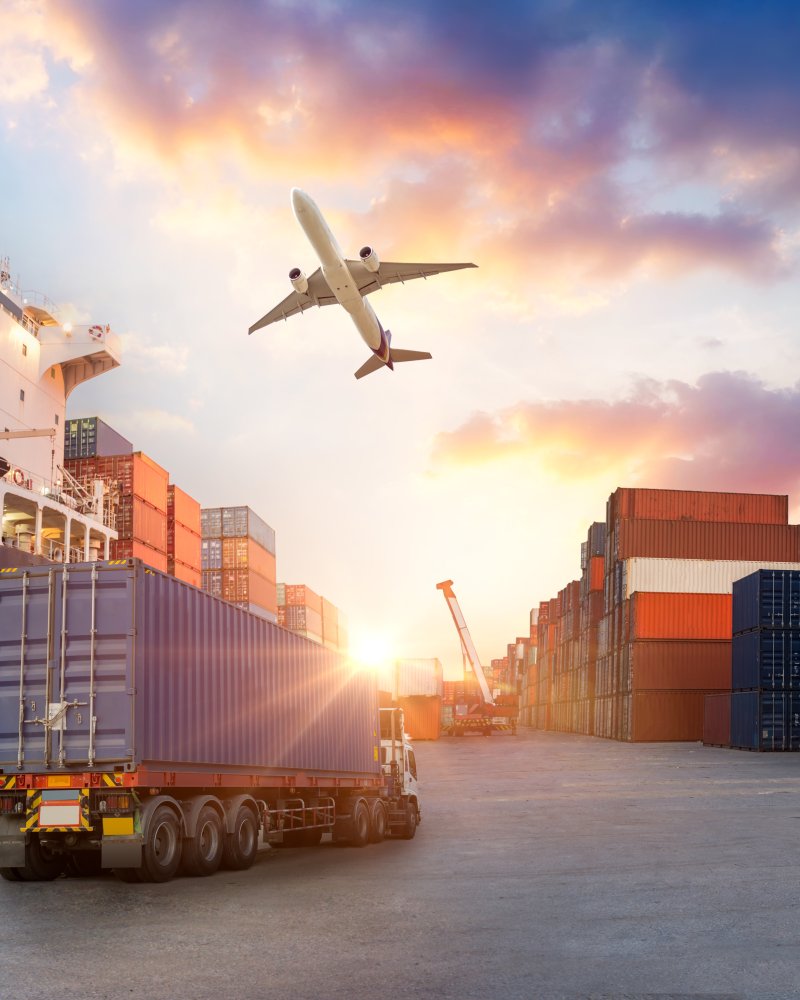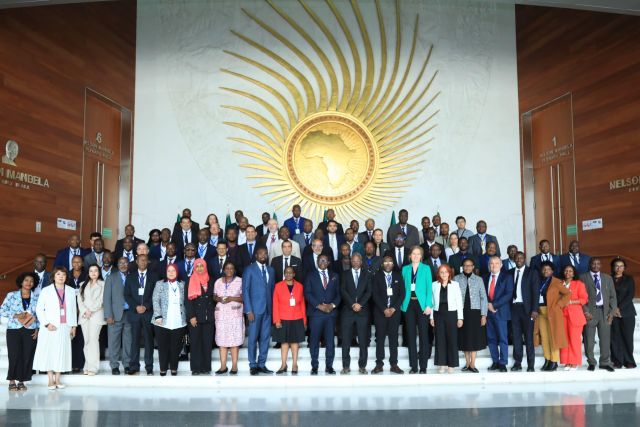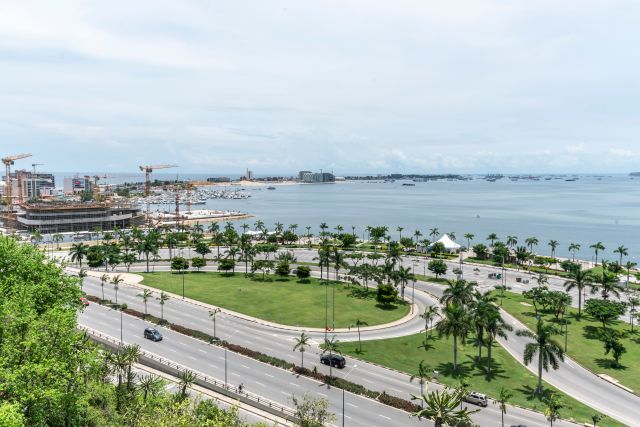
L'Afrique attire les capitaux, elle ne les mendie pas. Le sommet de Luanda le prouvera-t-il ?
L'Union africaine (UA) organisera un sommet qui ne demandera pas d'aide mais invitera le monde à co-investir dans l'Afrique de demain. Sous la direction du président angolais João Lourenço et du président de l'UA, et avec l'AUDA-NEPAD à la barre, le Sommet du financement de Luanda vise à remettre en question les modèles de financement du développement axés sur les donateurs et à proposer un nouveau programme audacieux de partenariats d'investissement pour une transformation axée sur les infrastructures.
Par Ibrah Wahabou, responsable des infrastructures et des transports à l'AUDA-NEPAD
L'Union africaine (UA) organisera un sommet qui ne demandera pas d'aide mais invitera le monde à co-investir dans l'Afrique de demain. Sous la direction du président angolais João Lourenço et du président de l'UA, et avec AUDA-NEPAD à la barre, le Sommet du financement de Luanda vise à remettre en question les modèles de financement du développement axés sur les donateurs et à proposer un nouveau programme audacieux de partenariats d'investissement pour une transformation axée sur l'infrastructure.
L'AUDA-NEPAD, en étroite collaboration avec le gouvernement angolais et les principaux partenaires, s'efforce de veiller à ce que le sommet débouche sur des résultats concrets et à fort impact, des résultats qui correspondent à la fois à l'urgence du moment et à l'ampleur des ambitions de l'Afrique.
Cet article explique pourquoi le sommet de Luanda marque un tournant dans l'approche de l'Afrique en matière de capitaux et d'investissements.
C'est le moment pour l'Afrique de montrer la voie...
L'Afrique occupe une place de plus en plus centrale dans les stratégies d'investissement mondiales. Prenons les chiffres suivants pour la seule année 2024 :
La Chine a engagé 29,2 milliards de dollars dans des projets de l'Initiative Belt and Road (BRI) à travers l'Afrique, soit une augmentation de 34 % par rapport à l'année précédente.
La Development Finance Corporation (DFC) américaine détient désormais son plus grand portefeuille en Afrique, avec plus de 13,1 milliards de dollars d'exposition. Pour la seule année 2024, elle a approuvé 72 nouvelles transactions.
Par l'intermédiaire de son portail mondial, l'Union européenne s'est engagée à mobiliser 150 milliards d'euros sur 11 corridors stratégiques du continent.
Il existe des exemples similaires dans le monde entier. L'Inde, le Japon et les pays du Golfe prennent des mesures similaires.
Son Excellence le président Lourenço a bien saisi le moment lors de la 79e Assemblée générale des Nations unies :
"L'Afrique doit construire des infrastructures qui garantissent la connectivité entre les pays africains, permettent la mobilité des opérateurs économiques et encouragent le libre-échange entre eux.
Il a également précisé que la priorité essentielle était le développement ancré dans l'intensification du commerce intra-africain, en particulier dans le cadre de la zone de libre-échange continentale africaine (ZLECA).
C'est cette vision, fondée sur le commerce intra-africain et la ZLECA, que le sommet de Luanda doit activer.
Autoroutes transafricaines
L'importance de Luanda 2025 ...
Après plus d'une décennie de travail au sein du système de l'Union africaine sur la politique d'infrastructure et le financement de projets. J'ai eu le privilège de contribuer directement à l'économie politique du financement des infrastructures et des stratégies d'investissement en Afrique, et de l'observer de près. Tout au long de ce parcours, j'ai pu apprécier l'importance de traduire la diplomatie de haut niveau et les sommets mondiaux en résultats tangibles qui améliorent la vie quotidienne des citoyens africains, génèrent des bénéfices pour les partenaires du secteur privé et apportent une valeur significative aux contribuables de nos partenaires de développement bilatéraux. Cet ancrage, que les physiciens pourraient appeler une "force de rappel", est essentiel pour garantir que notre travail reste pertinent par rapport à ce qui compte vraiment.
En cours de route, j'ai appris une vérité simple : les sommets et les dialogues n'ont de l'importance que lorsqu'ils produisent des résultats concrets.
Trop souvent, nous nous réunissons autour de grandes tables alors que des routes ne sont pas construites, que des corridors sont bloqués et que des projets susceptibles d'être investis ne sont pas suffisamment préparés ou financés. Luanda doit être différent. Elle doit faire le lien entre l'ambition politique et l'appétit des investisseurs, et entre la diplomatie et les accords.
C'est particulièrement important à une époque où les changements géopolitiques mondiaux remettent en question les fondements mêmes du multilatéralisme qui a défini les relations de l'Afrique avec le monde au cours des 80 dernières années. On assiste plutôt à l'émergence d'un bilatéralisme plus transactionnel, où les infrastructures et les chaînes d'approvisionnement essentielles sont au cœur de ce paysage en pleine évolution.
Pour l'Afrique, il ne s'agit pas d'une menace, mais d'une opportunité historique. Avec un milliard d'habitants supplémentaires prévus d'ici 2050 et des actifs stratégiques dont le monde a cruellement besoin, le continent a de précieuses cartes en main. Nous devons à la génération future de jouer ces cartes de manière stratégique et correcte, en nous appuyant sur l'appropriation et le leadership de l'Afrique.
Priorités stratégiques de l'UA à Luanda 2025
Les investisseurs, les partenaires commerciaux, les groupes de pression et les acteurs du développement peuvent s'attendre à ce que les délibérations portent sur trois domaines clés.
1. Une vision africaine unifiée pour des investissements intégrés dans les infrastructures
L'Afrique s'éloigne résolument des réseaux fragmentés et déconnectés de chemins de fer, de routes, de mines et de ports liés à l'extraction. Au lieu de chemins de fer construits pour évacuer les minerais, nous concevons des corridors de développement économique qui relient les régions, les centres industriels et les chaînes de valeur.
Des corridors tels que Lobito, Dakar-Bamako-Djibouti et LAPSSET (un chemin de fer de 3 000 km reliant le Kenya, l'Éthiopie et le Sud-Soudan qui pourrait augmenter le PIB du Kenya de 3 %) illustrent ce changement. À Luanda, l'Afrique présentera ces projets comme des écosystèmes d'investissement et non comme de simples projets.
2. Débloquer les financements nationaux grâce à la collaboration institutionnelle
Le sommet mettra en lumière la manière dont les gouvernements africains et les IFD dirigées par des Africains peuvent débloquer des capitaux nationaux, en particulier les 70 milliards de dollars qui, selon les estimations, dorment chaque année dans des fonds de pension et des fonds souverains.
Cette somme pourrait avoir un effet catalyseur. Il permettrait de financer le programme de développement des infrastructures en Afrique (PIDA) et d'accélérer le marché unique de l'énergie en Afrique (AfSEM).
3. Réaffirmer le leadership de l'Afrique en matière de climat et exiger un financement accessible pour le climat
L'Afrique reste attachée à des infrastructures responsables et durables, même si elle poursuit ses objectifs de développement.
Luanda réaffirmera la position de l'Afrique sur le changement climatique et demandera aux partenaires mondiaux de rendre des comptes. Il ne s'agit pas d'aide. C'est une question de justice.
L'Afrique ne contribue qu'à hauteur de 4 % aux émissions mondiales, mais elle est confrontée aux conséquences les plus graves du changement climatique. Et pourtant, nous sommes prêts à reprendre la tête des solutions.
Au-delà de la vision, Luanda permettra de conclure des accords...
Le sommet de Luanda ne se limitera pas à des discours. Il comprendra
des salles de marché et des tables rondes sur l'investissement
Des projets bancables dans les domaines des transports, de l'énergie, du numérique et de l'eau.
Des partenariats pour faire passer les projets du stade du pipeline à celui de la clôture financière.
L'Afrique ne mendiera pas, elle construira...
L'Afrique ne mendie pas de capitaux. Elle les attire. Et de plus en plus, elle exige d'avoir son mot à dire sur la manière dont ces capitaux sont structurés, déployés et alignés sur la vision du continent.
Que vous soyez un décideur politique, un investisseur ou un partenaire mondial, Luanda est la plateforme où s'engager. Pour co-créer des solutions. Pour construire la colonne vertébrale d'une Afrique unie, connectée et intelligente sur le plan climatique, comme nous le souhaitons.
Nous avons hâte de vous y rencontrer.

